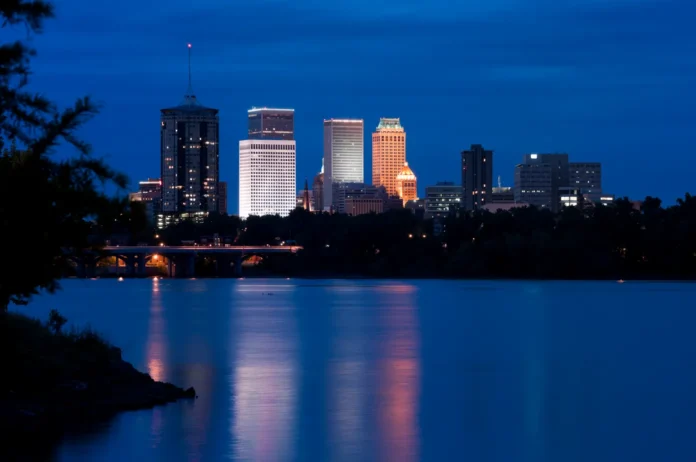Oklahoma took a stance against diversity, equity and inclusion (DEI) last month. The state governor, Kevin Stitt, signed an executive order defund DEI efforts at public colleges and universities and ban it at other state agencies.
He said the measure would take “politics out of education” and encourage “equality of opportunity rather than promising equal outcomes.” Affirmative action itself has been banned in the state since 2012.
This last executive The order does not target student organizations, but prohibits the use of state resources for diversity training and calls for a review of current DEI programs to eliminate any "non-critical personnel." Oklahoma follows in the footsteps of Florida, Texas, South Dakota, North Carolina and Tennessee. when trying to brake DEI initiatives in public schools.
But public universities are not the only ones affected; this is part of a broader reaction to DEI that has become prevalent in many industries, from technology to academic sphere a fashion. DEI supporters say these initiatives help everyone get ahead, especially marginalized communities that have historically been deprived of their rights. Critics call DEI-related work a form of discrimination.
The hardline stance Oklahoma has taken against DEI is at odds with the efforts of its Tulsa tech hub. Over the past decade, Tulsa has attempted to attract talent from across the country. Notably, he is also trying to rebuild Black Wall Street, a once-thriving black business neighborhood that white supremacists bombed in the 1920s.
Tré Baker, CEO of Tulsa Techstars, said the executive order does not materially change business on the ground. The city's ecosystem has become accustomed to dealing with limitations since affirmative action was banned in the state in 2012. The government also has no control over private investment decisions. He said it's as simple as not publicly announcing any preference for one group over another.
"The problem is not the law, the problem has always been the people who make investment decisions," he said. “When we empower more Black investors, more Black founders will be funded.”
Still, others fear this could diminish the appeal of Tulsa that drew people to the city in the first place. Nicholas Lalla, founder of Tulsa Innovation Labs, said much of Tulsa's tech scene was built with inclusion in mind and that the executive order is “counterproductive.”
He moved to Tulsa in 2020 to work for the George Kaiser Family Foundation, a major investor in much of the Tulsa tech scene. He then launched Tulsa Innovation Labs to increase opportunities for entrepreneurs in the city. Although he has since left Tulsa Innovation Labs, he said diversity, equity and inclusion were always part of his founding mission. There is underlying tension between the Tulsa tech hub and the governor's office, he said, and the executive order could possibly hurt Oklahoma's economic prospects.
“Especially for a state already struggling with perception issues around inclusion,” he said, “the order does nothing to create jobs for Oklahomans and, worse, sends the wrong message to tech investors and talent. external. “Diversity is a central attribute of a thriving innovation economy.”
But what about the Black neighborhood of Wall Street? Would a DEI backlash affect rebuilding efforts? Kelsey Davis, founder of recruiting platform Cllctve, said Black Wall Street will continue to rebuild and leverage the knowledge and wisdom that has sustained it for so long despite the century of racist attacks it has faced. Davis moved to Tulsa two years ago and purchased a home on Black Wall Street, looking to build value and equity in the local community.
The area has undergone changes, he said, and the anti-DEI backlash can only hurt if it stops people from fighting for equity in their own communities. "We need to examine ourselves to ask what we are doing individually to help restore and maintain the freedom and access to wealth creation that our ancestors had 103 years ago, before the massacre," she said. "We must also continue to consider which economic freedoms were sacrificed for the sake of social progress and reassess how to achieve both in this modern era."
However, for the most part, and for many, everything remains the same. “Local leaders cannot be distracted or discouraged by naysayers,” Lalla said. "Tulsa just needs to keep doing what it's doing."




